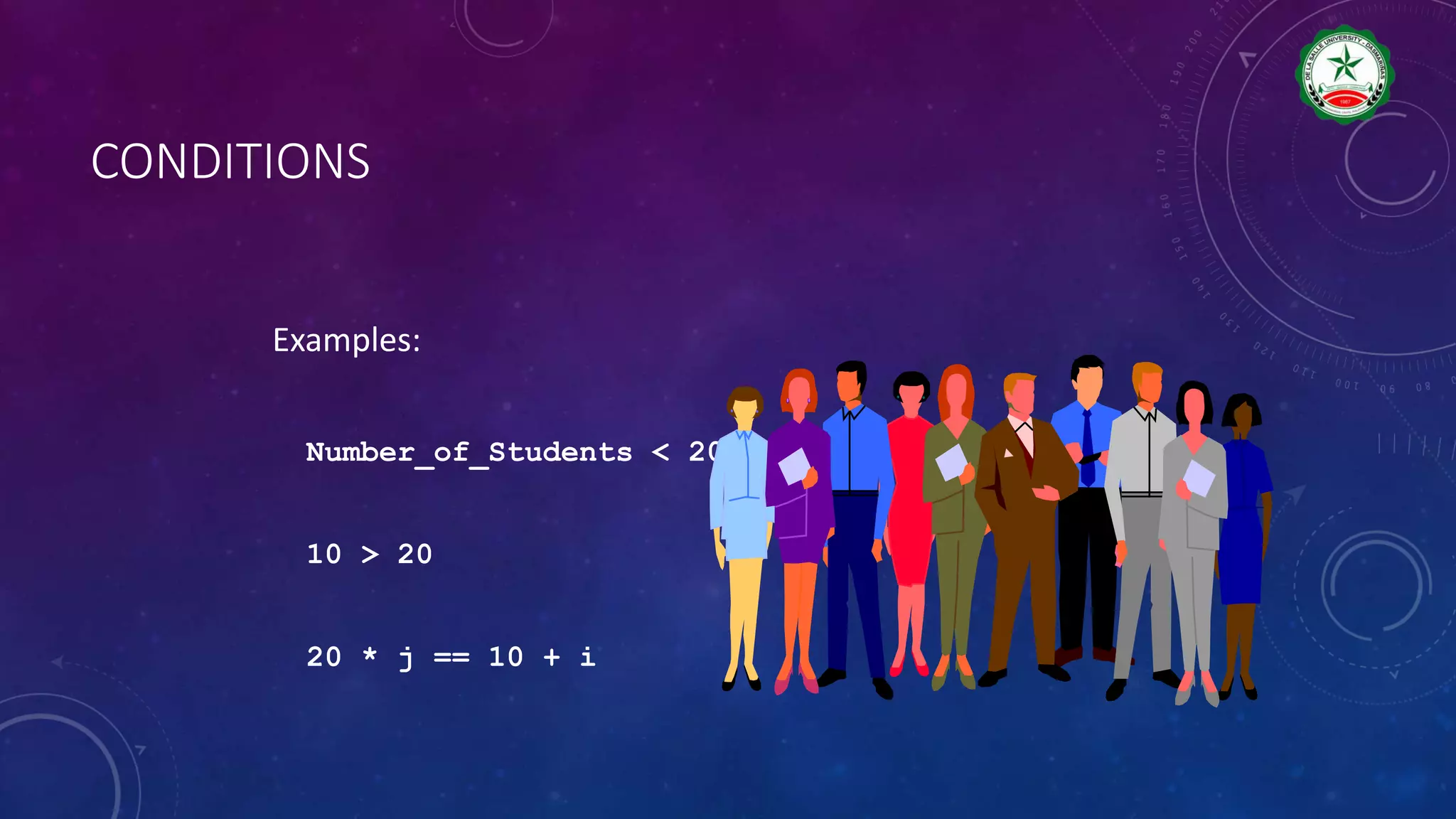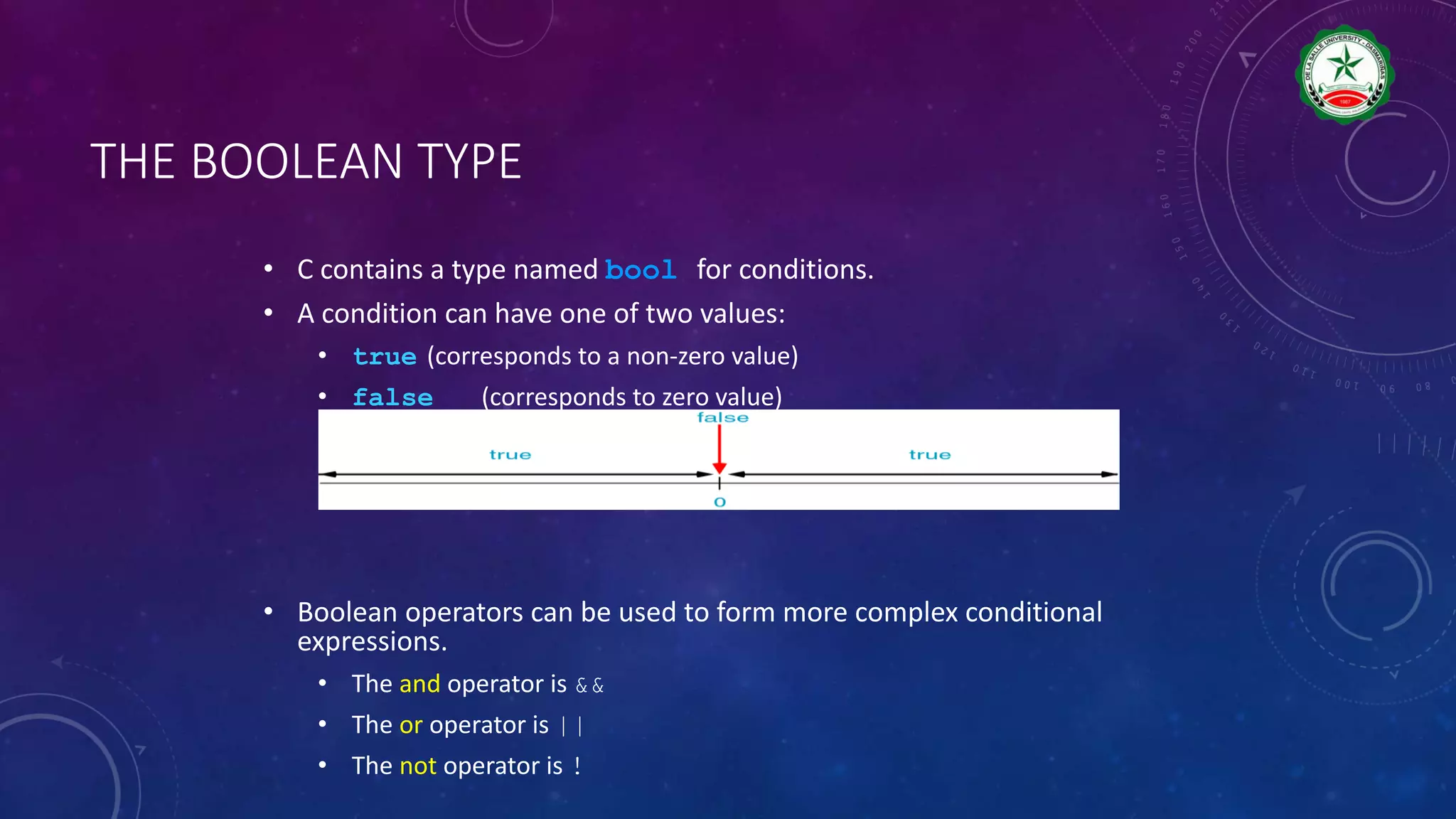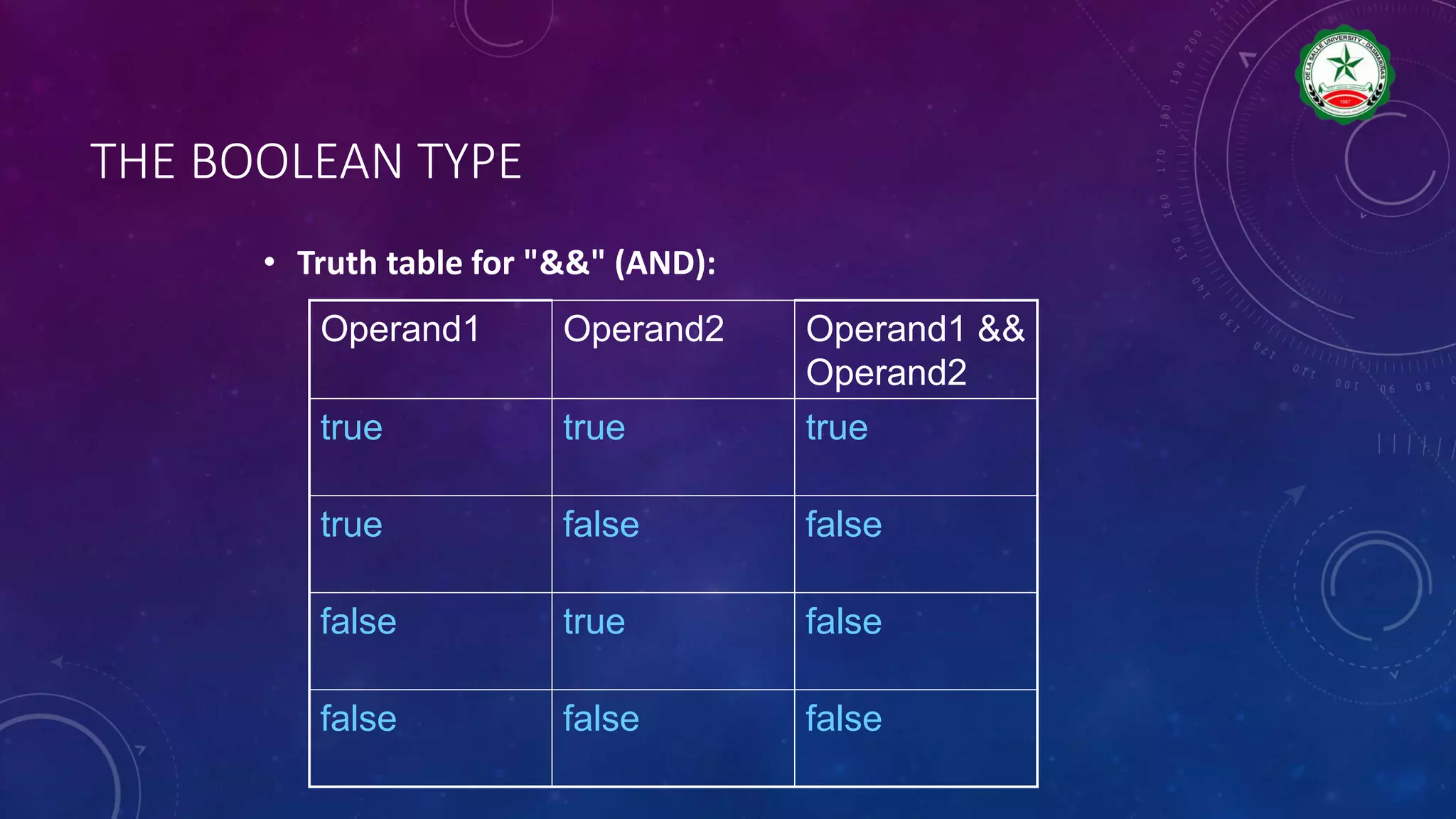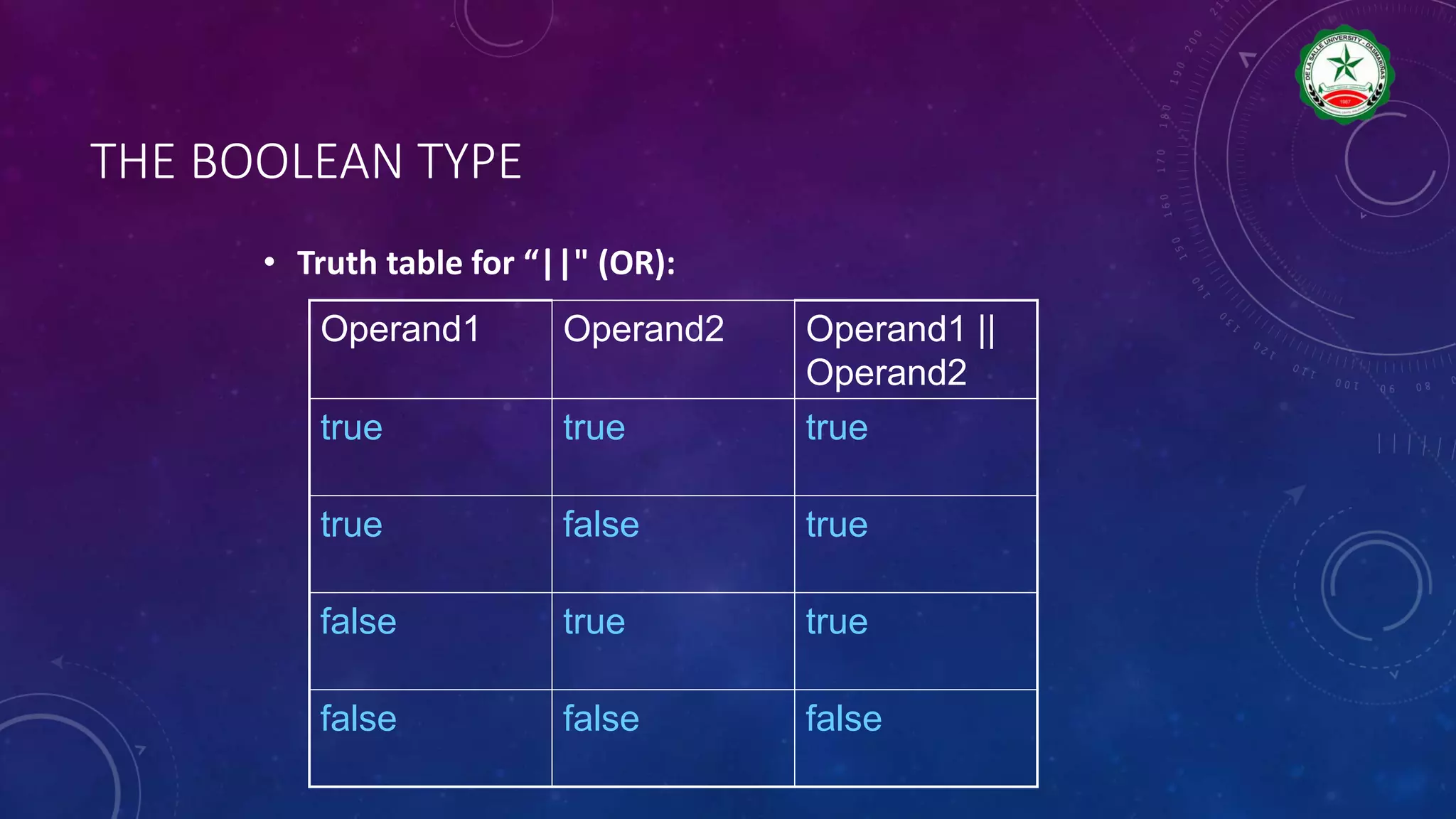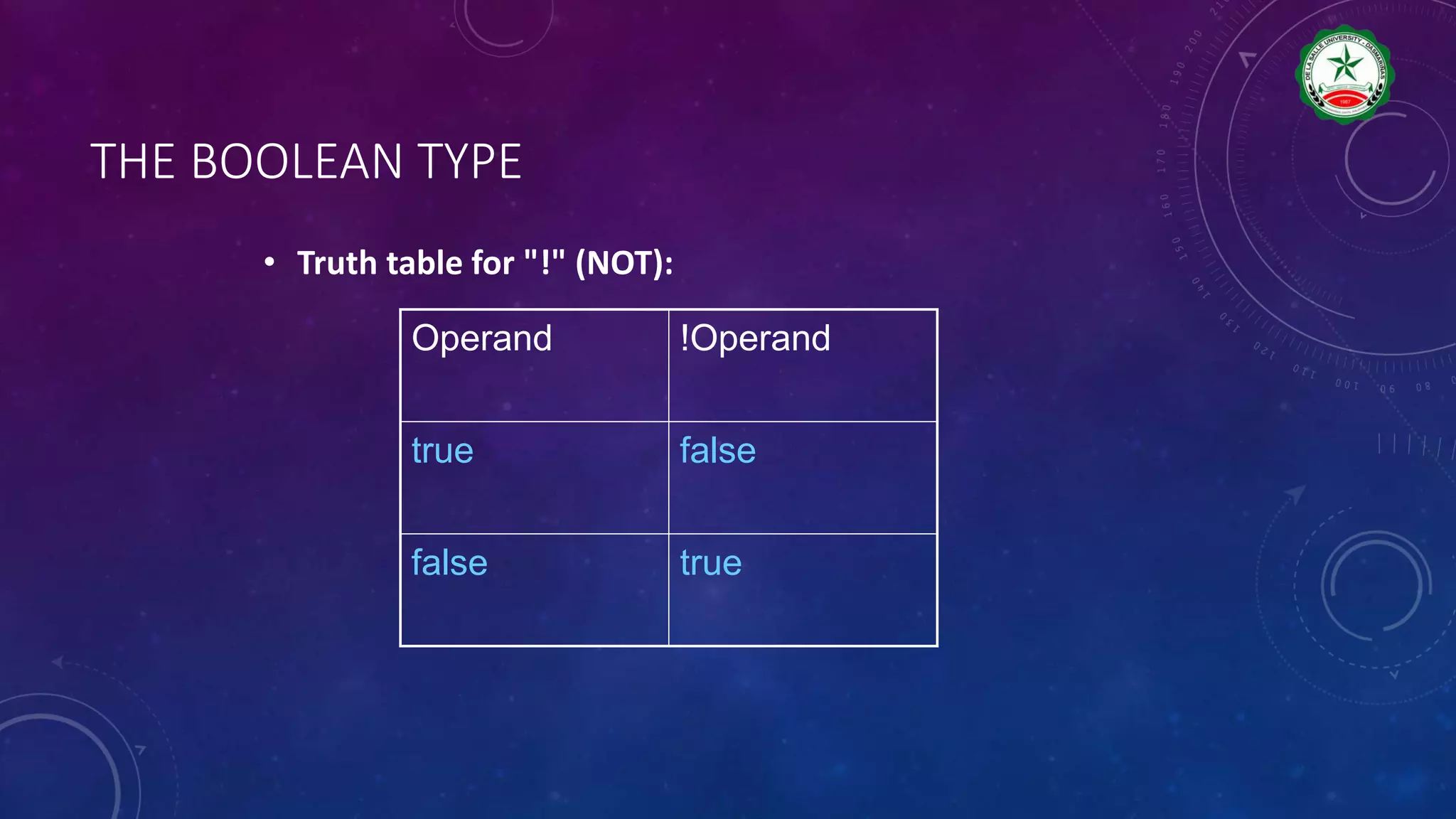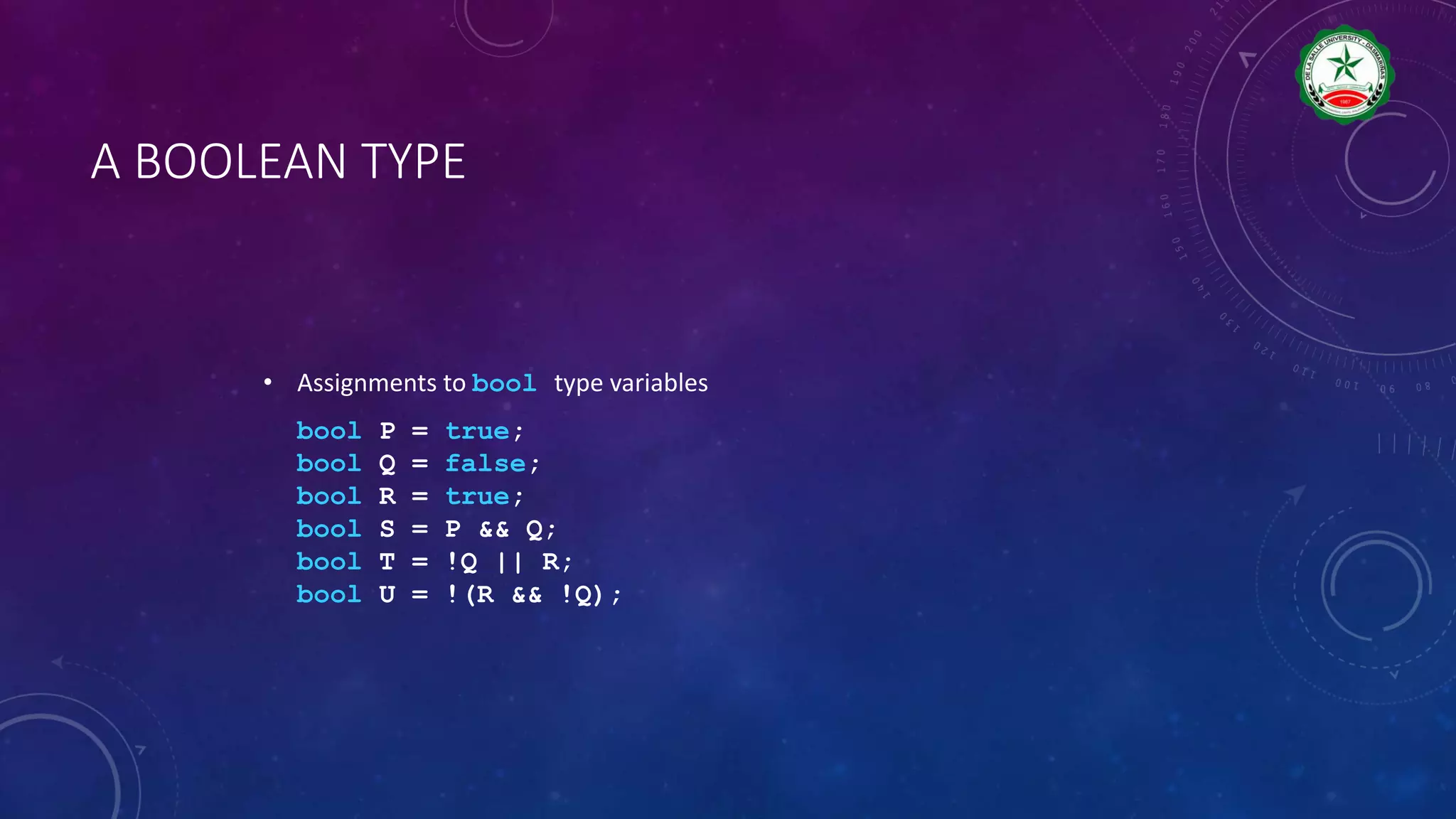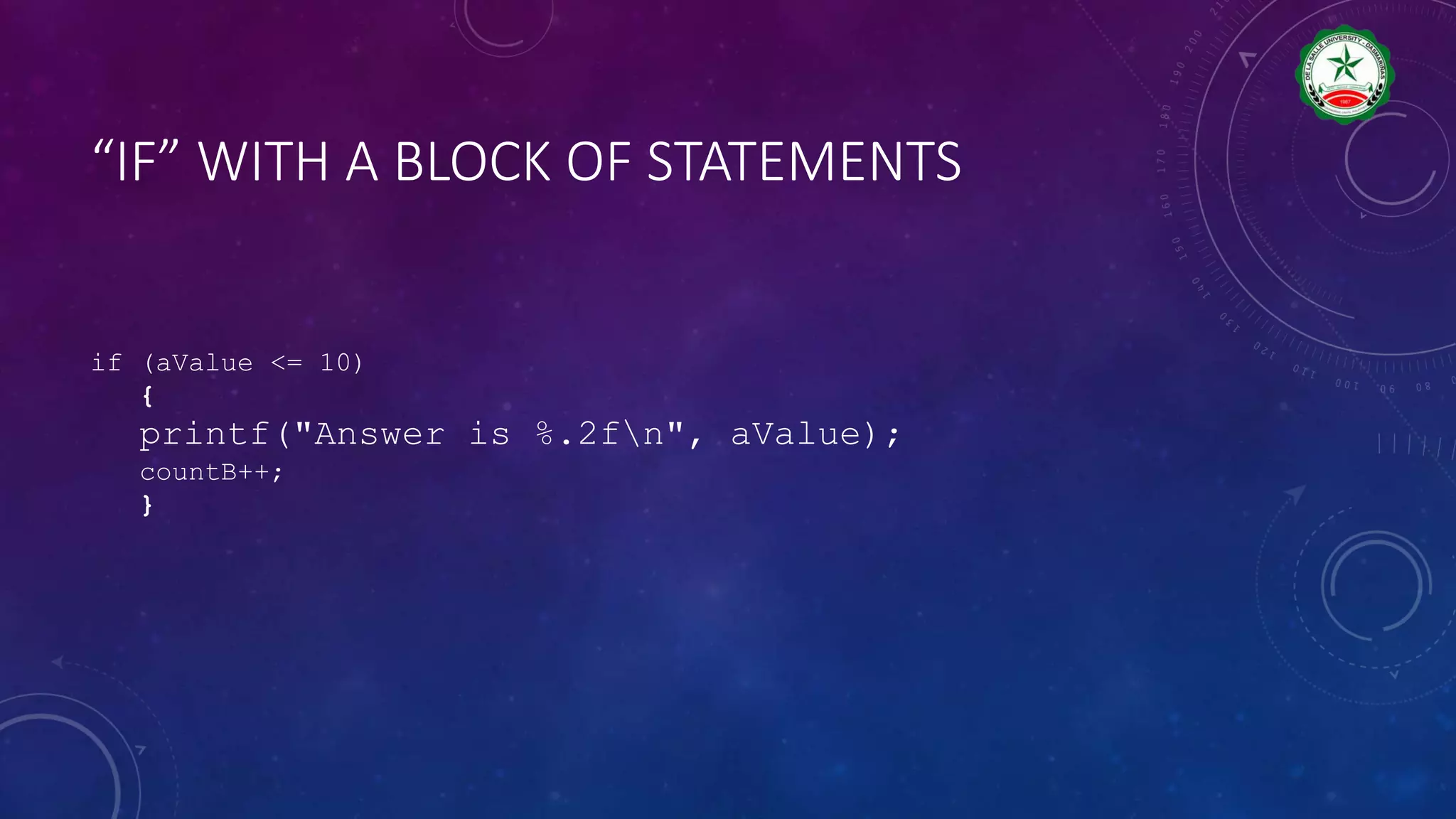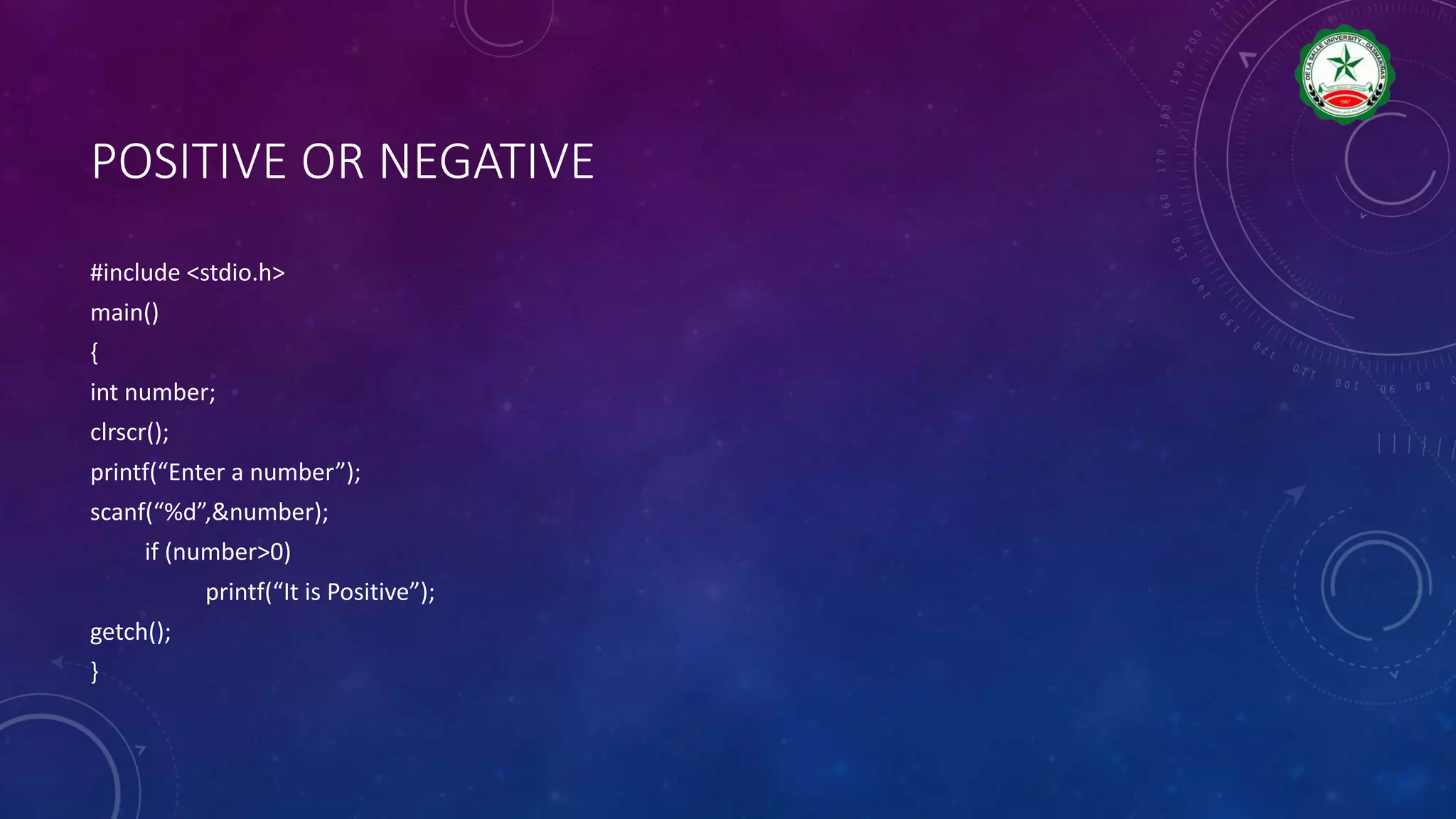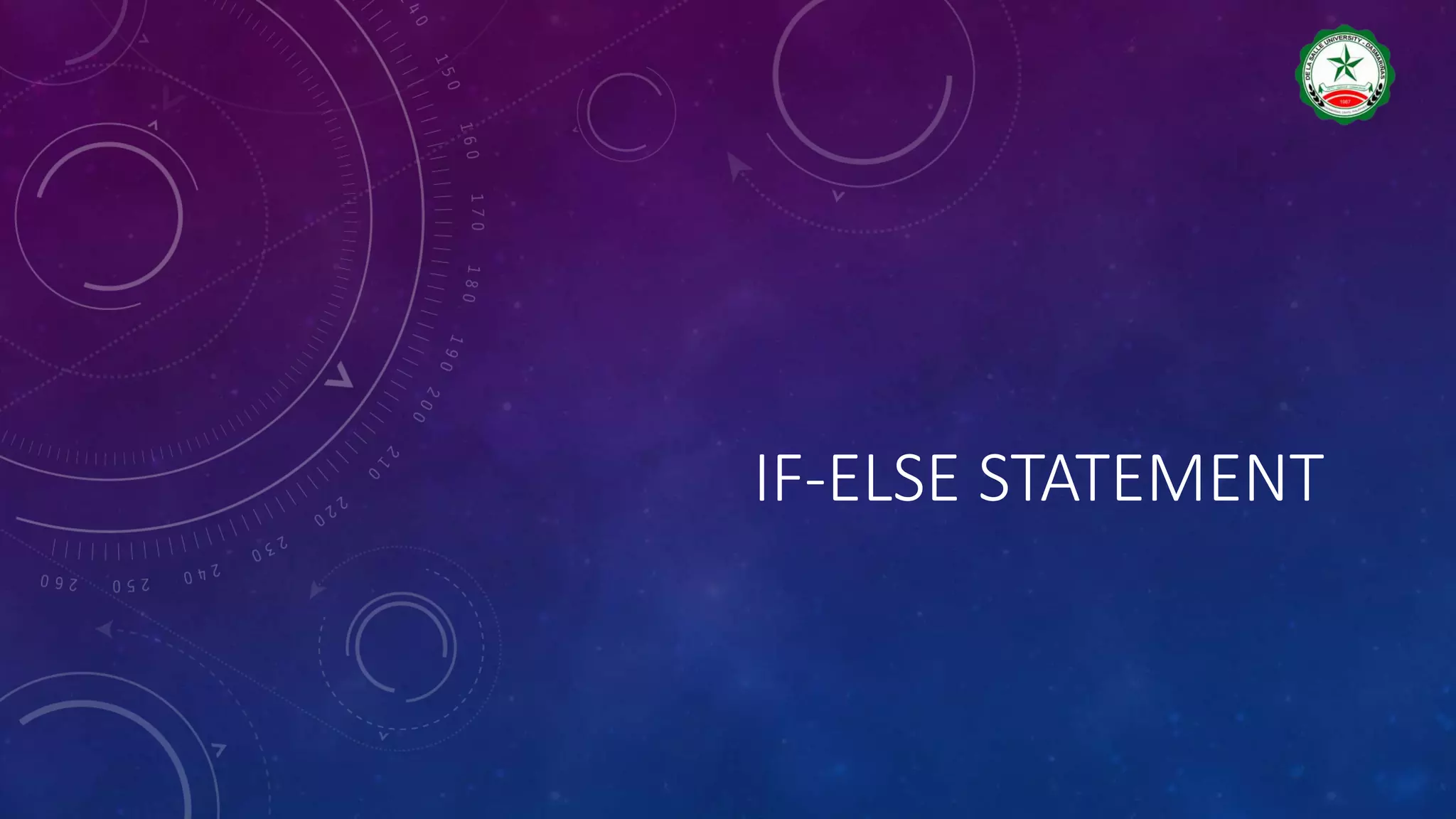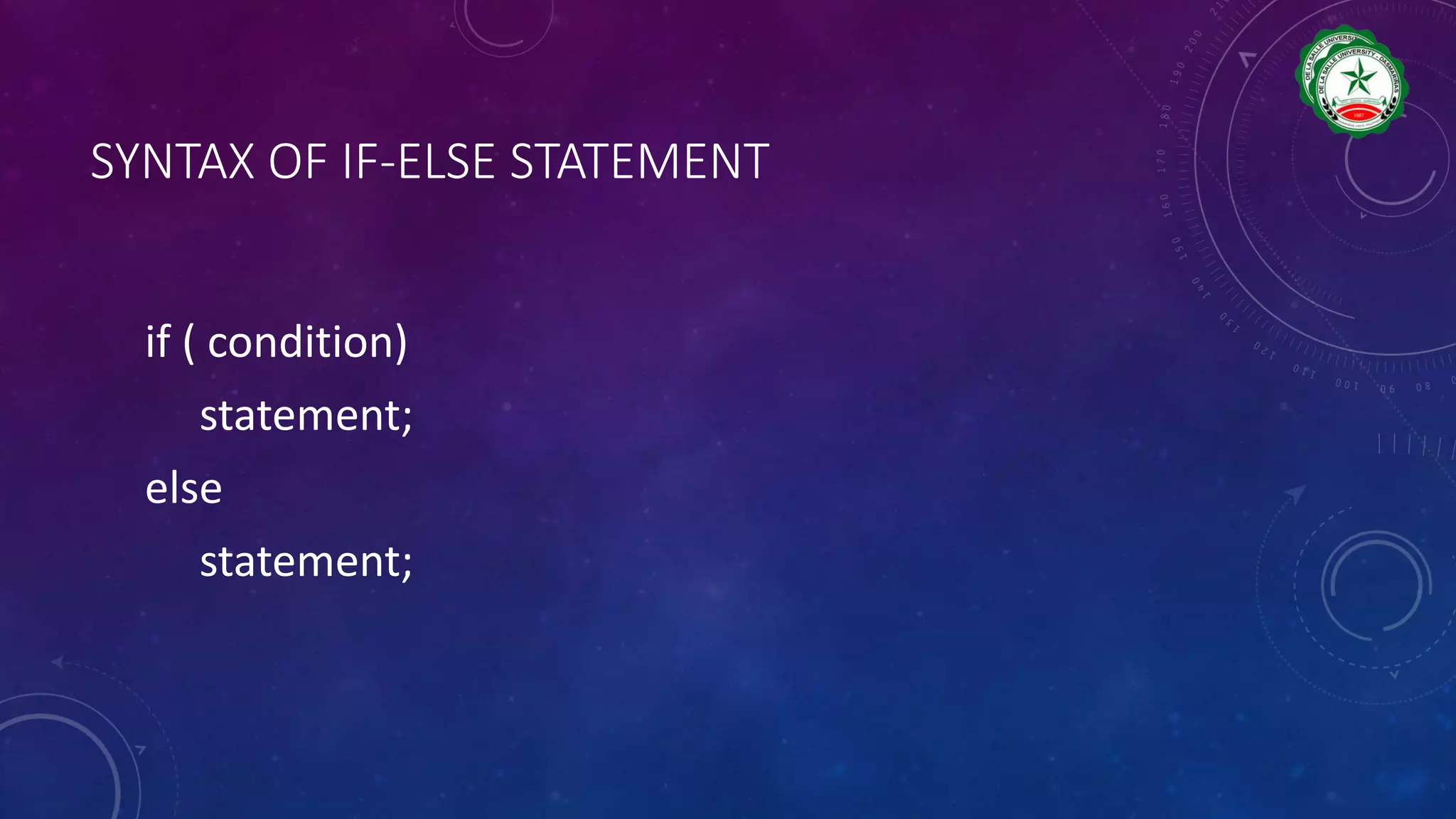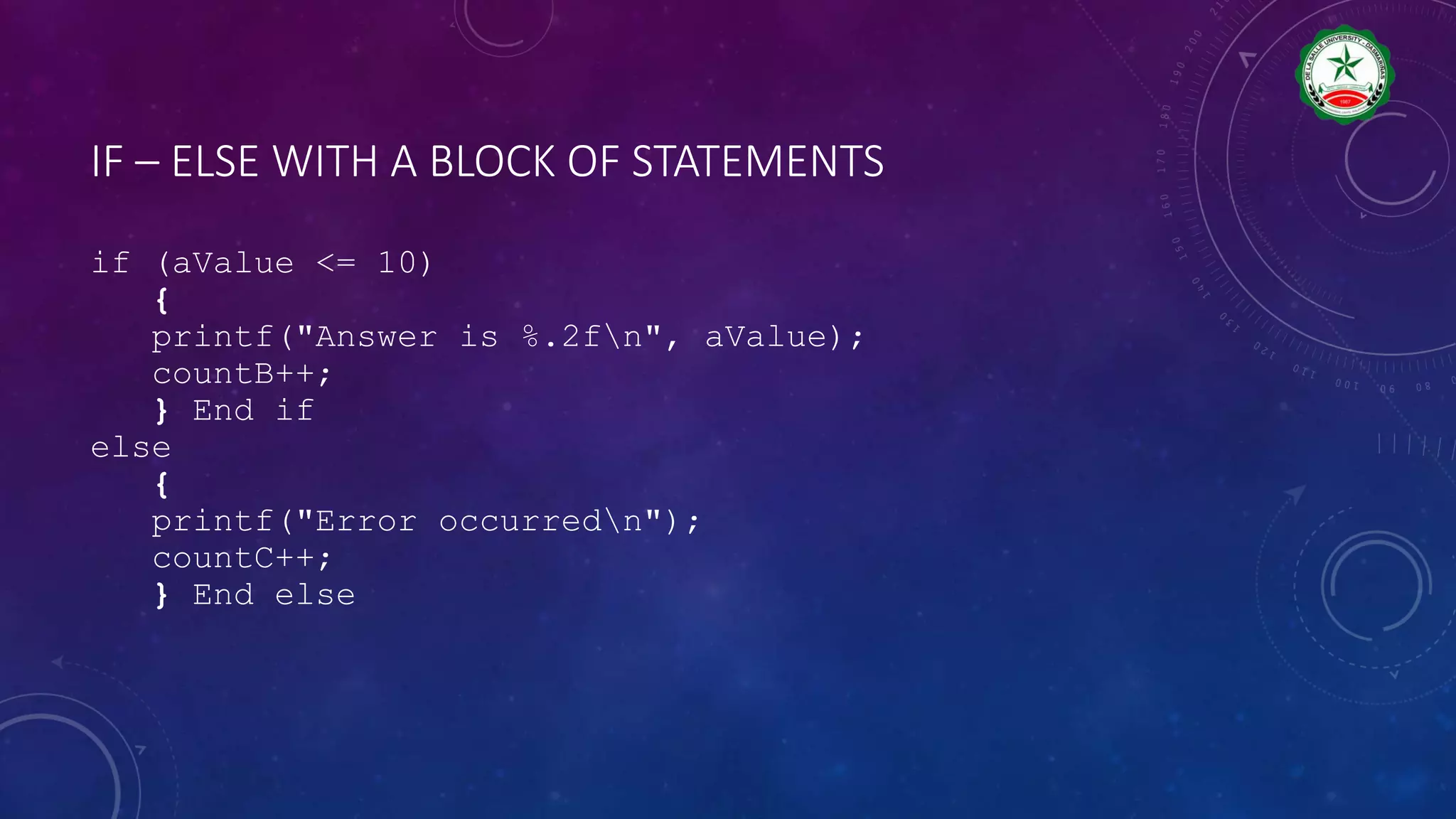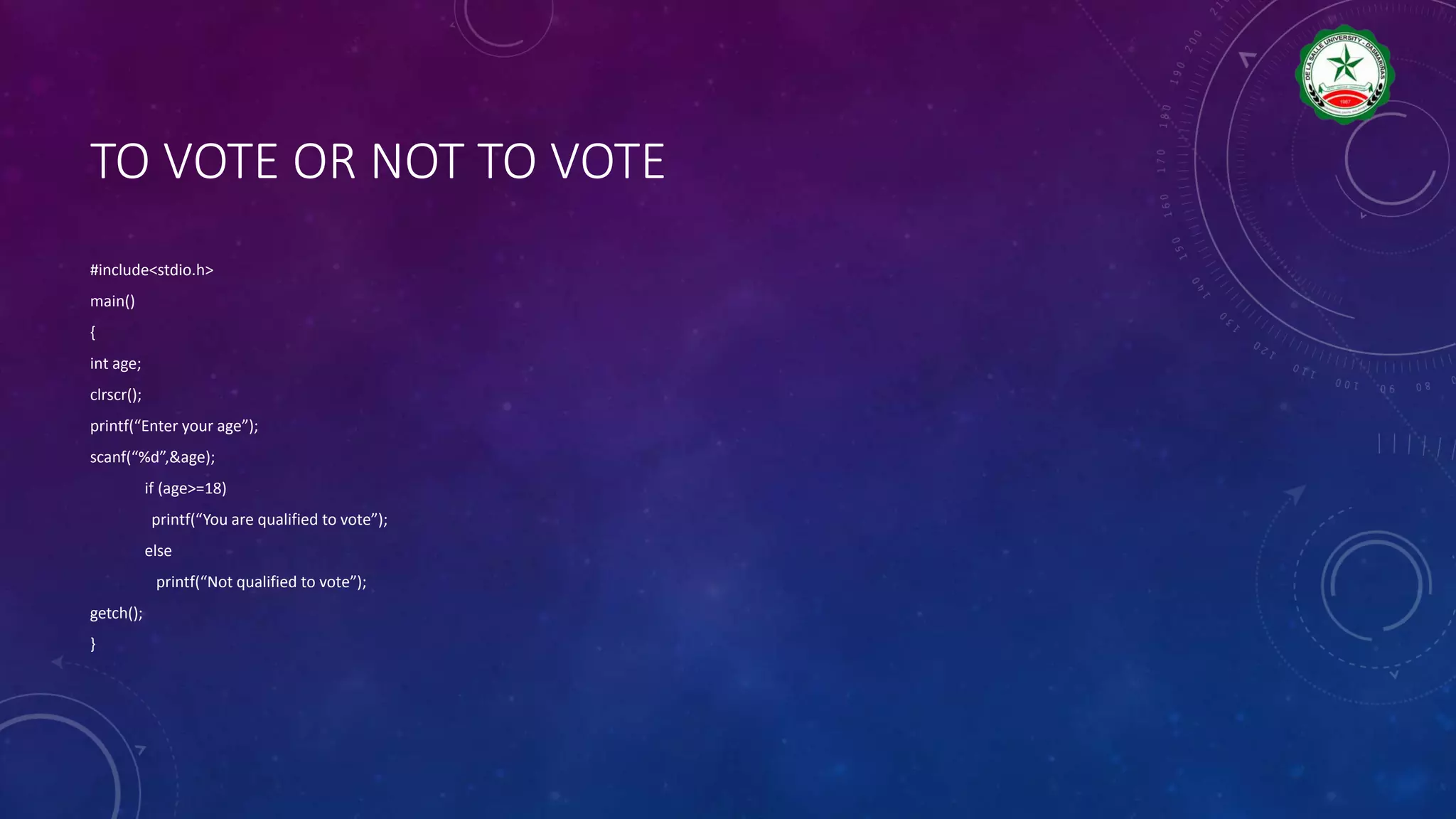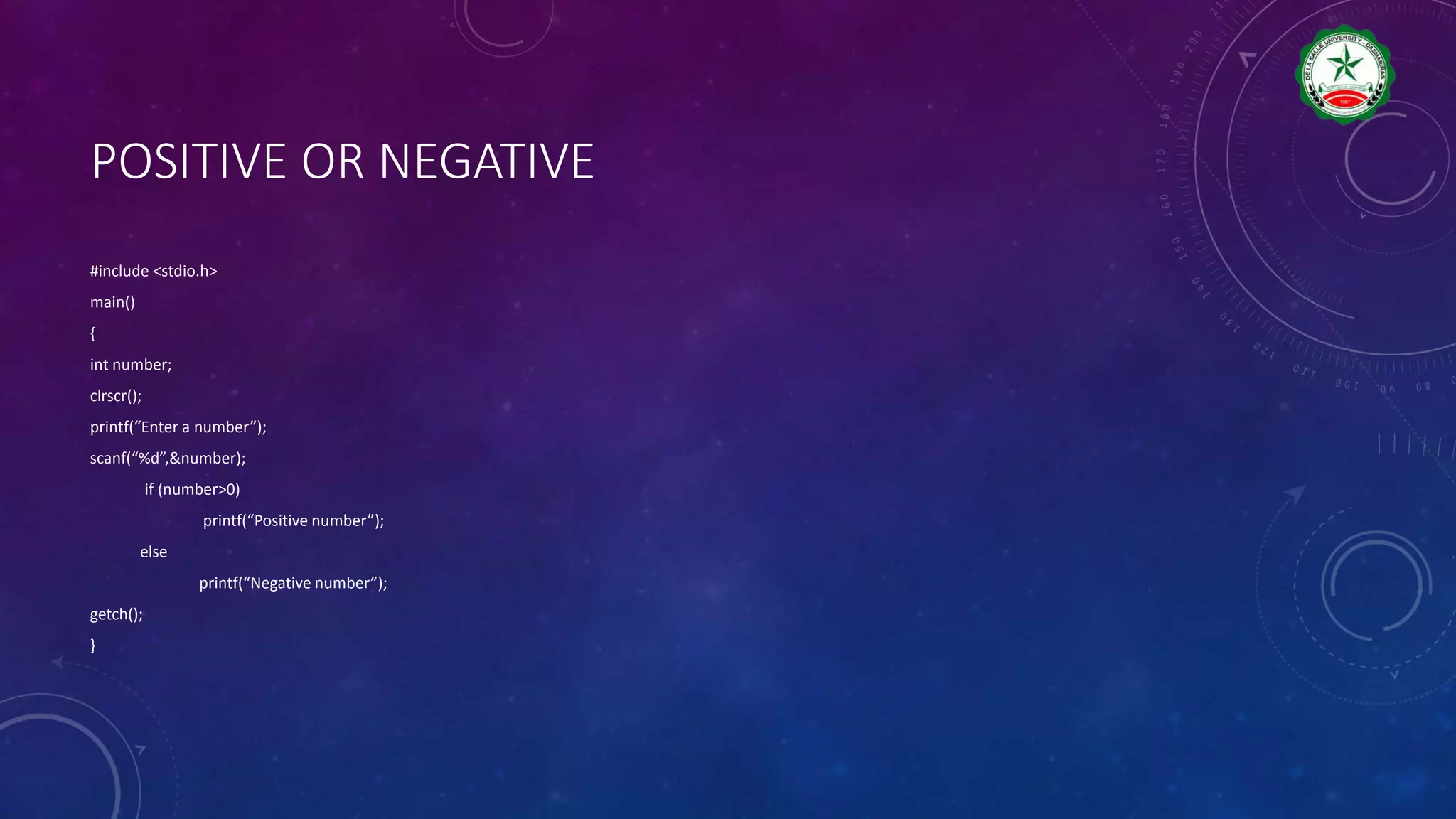If statements and relational operators allow programmers to control program flow based on conditions. There are three types of if statements: if, if-else, and if-else-if. Relational operators like ==, <, > are used to form conditions. The if statement executes code if the condition is true, while if-else executes one block if true and another if false. Boolean logic and data type bool can be used to build more complex conditional expressions. Examples demonstrate using if statements and relational operators to check values, qualify ages to vote, and determine positive/negative numbers.
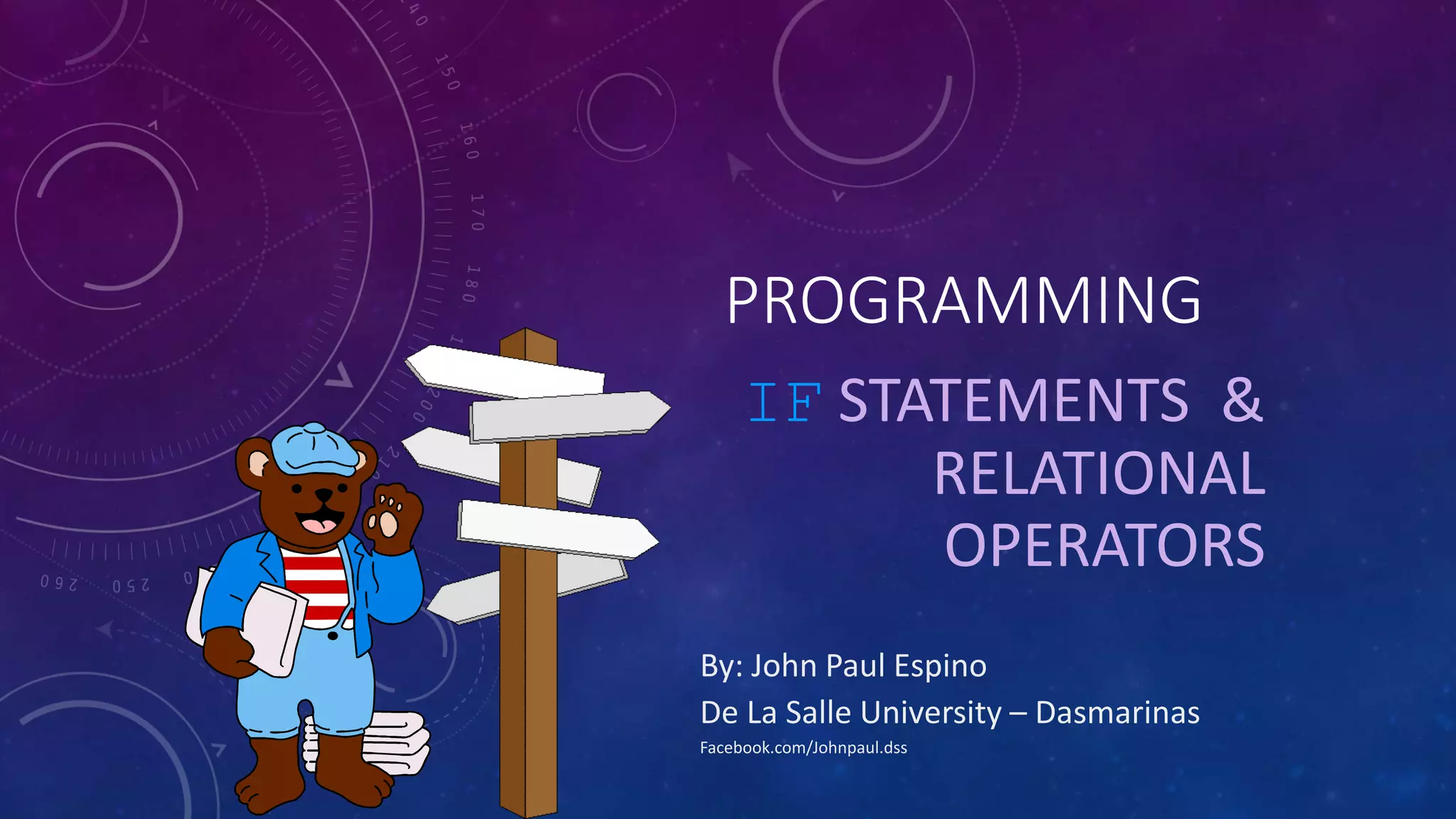


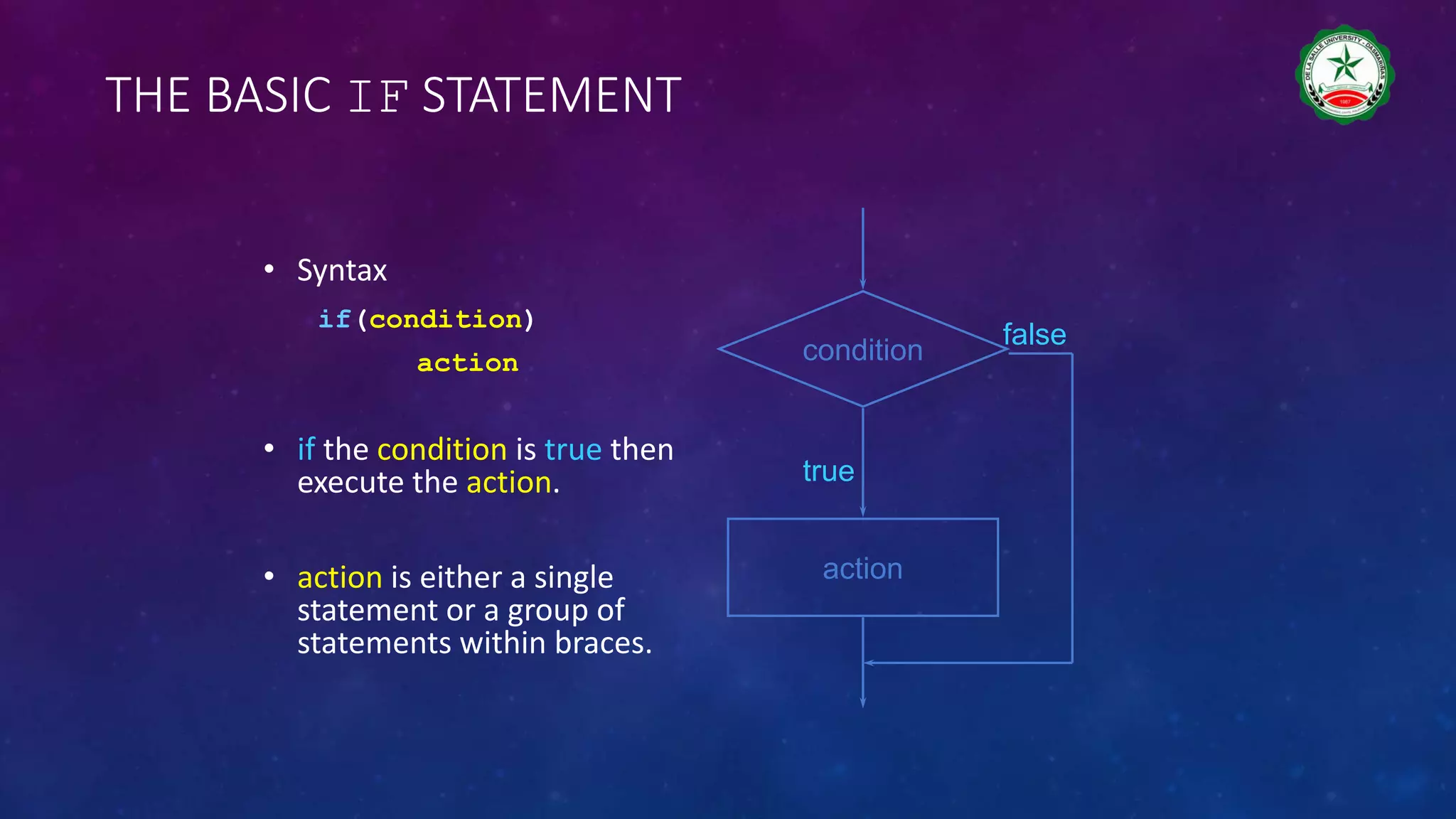
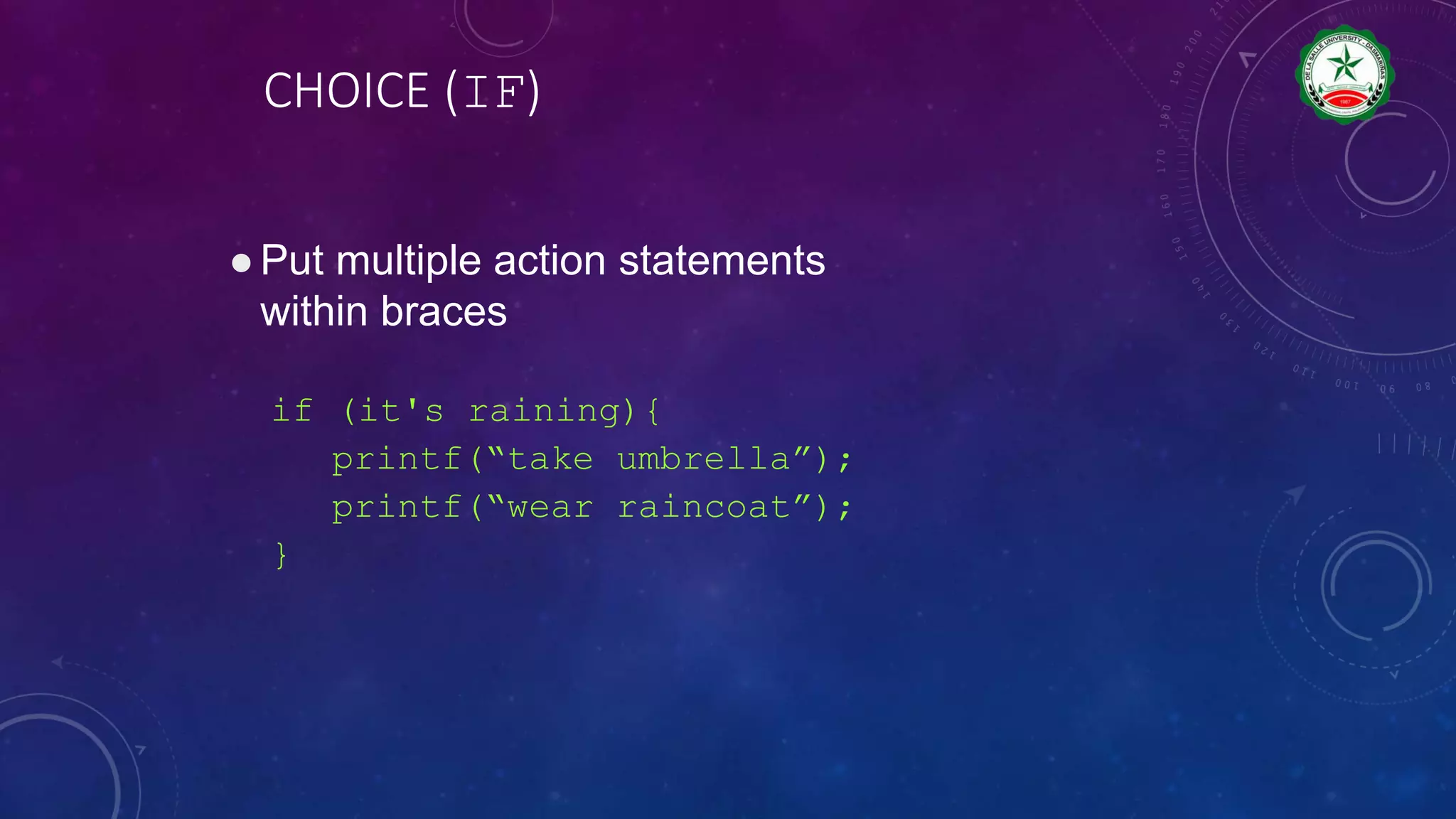
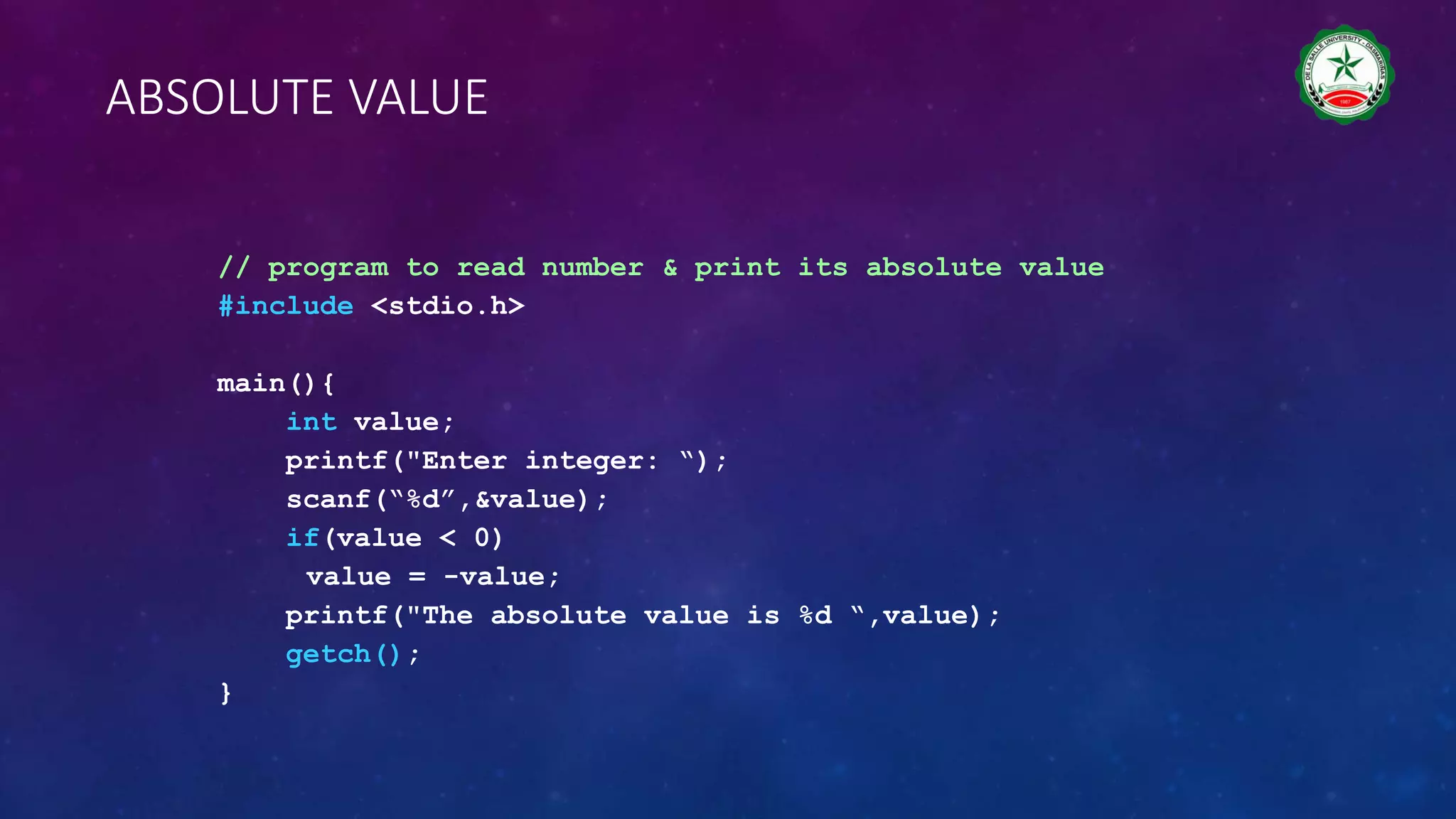
![RELATIONAL OPERATORS Relational operators are used to compare two values to form a condition. Math C Plain English = == equals [example: if(a==b) ] [ (a=b) means put the value of b into a ] < < less than <= less than or equal to > > greater than >= greater than or equal to != not equal to](https://image.slidesharecdn.com/computerprogramming-ifstatementsrelationaloperators-180602011018/75/Computer-Programming-if-Statements-Relational-Operators-7-2048.jpg)
